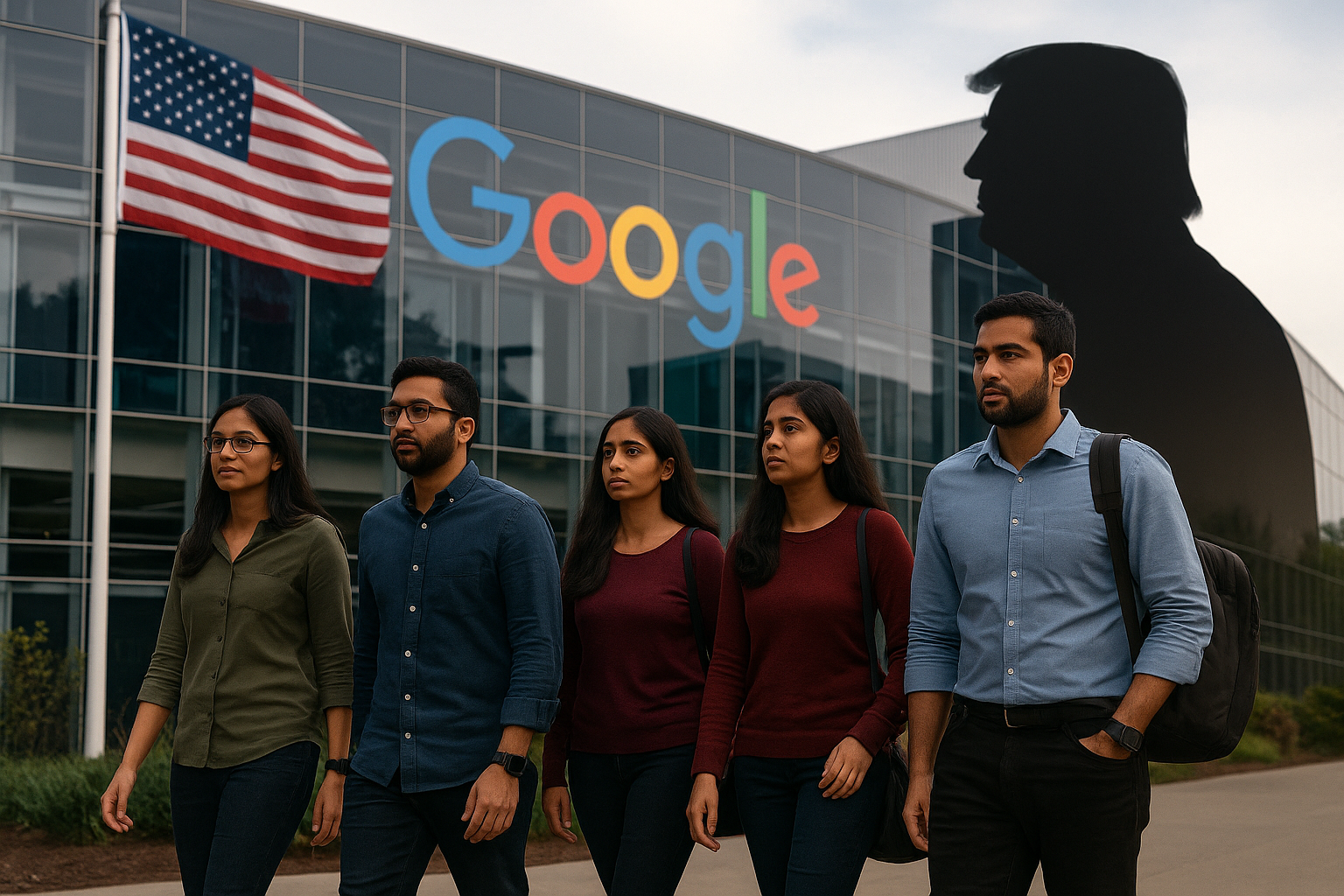President Donald Trump has stunned global markets with his latest immigration move. Late Friday, he announced a $100,000 fee on new H-1B visa applications. The decision directly targets the lifeline of America’s tech workforce. Companies like Amazon, Microsoft, Google, Meta, and Apple depend heavily on these skilled foreign workers. Amazon alone employs more than 14,000 H-1B holders.
The visa fee will apply to fresh applicants in the next lottery cycle, not to renewals or existing holders. Yet the shock was immediate. Tech giants rushed to advise employees not to travel internationally, fearing complications. Financial firms such as JPMorgan and Goldman Sachs also sent urgent guidance to staff. Trump’s order marks the toughest step yet in his broader crackdown on both illegal and legal immigration.
Visa Pressure Hits India’s $280 Billion Tech Industry
The impact is especially harsh for India. For decades, Indian outsourcing firms like Tata Consultancy Services, Infosys, and Wipro have fueled America’s digital backbone. These companies rely on H-1B visas to place engineers at U.S. clients such as Walmart and Citigroup. The new fee threatens that $280 billion industry, forcing firms to rethink their global delivery models. Shares of Indian IT giants already fell more than 3% after the announcement.
Indian workers account for over 70% of H-1B visa holders. Infosys alone secured more than 2,500 approvals last year. Under Trump’s new rules, that would cost the firm at least $250 million. While Indian companies have been reducing their reliance on U.S. visas, they still depend on them to maintain critical client relationships. India’s government warned of humanitarian consequences as thousands of families face disruption.
Big Tech Balances U.S. Costs with India Expansion
Trump’s visa fee could backfire on U.S. firms. While designed to protect American jobs, the move will likely increase costs for big tech. In response, companies may accelerate expansion of their global capability centers in India. Microsoft, Google, Goldman Sachs, and JPMorgan already operate vast hubs in cities like Bengaluru and Hyderabad. Offshore hiring offers a cheaper option than paying steep visa fees for onshore staff.
At the same time, companies cannot simply abandon U.S. operations. Many projects require engineers to be physically present with American clients. The new costs will push firms to limit such deployments, striking a delicate balance between U.S. needs and global strategy. Analysts say Indian IT firms may either redesign their pricing to absorb higher costs or shift more work offshore. Either way, the decision reshapes the economics of foreign work.
Visa Politics Strain U.S.-India Relations
The visa shock also carries diplomatic weight. The change landed just as Indian officials prepared for key trade talks in Washington. Prime Minister Narendra Modi now faces pressure at home for not shielding India’s interests. Opposition leaders accused his government of failing to secure better terms with Trump. On social media, outrage spread quickly, as families worried about their future in America and relatives back home.
India’s foreign ministry has promised consultations with U.S. authorities. Still, the tone of frustration is clear. Officials stress that both nations benefit from strong technology ties and that disruption harms competitiveness. For many in India, the visa is more than a work permit — it represents opportunity, financial security, and family stability. The sudden cost increase risks undermining decades of cooperation between the world’s largest democracy and its biggest tech market.
The Road Ahead for Trump, Big Tech, and India
The $100,000 visa fee has already sparked legal debate. Critics argue the order bypasses federal immigration law and will face immediate court challenges. Economists warn of uncertainty that could hurt both U.S. competitiveness and global markets. For Trump, however, the move delivers a clear political message: prioritizing American jobs.
For big tech, the strategy now involves risk management. Companies must weigh the cost of visas against the need for top global talent. For India, the blow is real, but it also highlights the country’s growing role as a global tech hub. If U.S. barriers rise too high, firms may only accelerate investments in India. What began as a visa fee could now reshape how technology, trade, and foreign work connect across borders.
